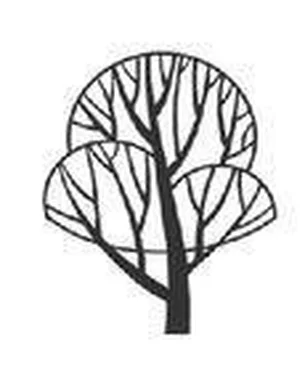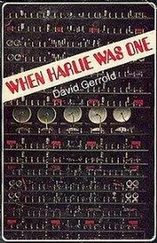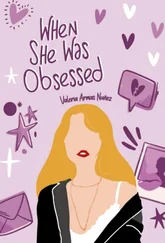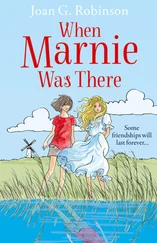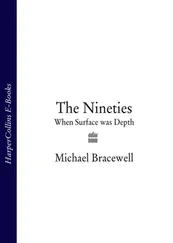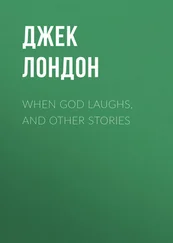Winman, Sarah - When God Was a Rabbit
Здесь есть возможность читать онлайн «Winman, Sarah - When God Was a Rabbit» весь текст электронной книги совершенно бесплатно (целиком полную версию без сокращений). В некоторых случаях можно слушать аудио, скачать через торрент в формате fb2 и присутствует краткое содержание. Жанр: Старинная литература, на английском языке. Описание произведения, (предисловие) а так же отзывы посетителей доступны на портале библиотеки ЛибКат.
- Название:When God Was a Rabbit
- Автор:
- Жанр:
- Год:неизвестен
- ISBN:нет данных
- Рейтинг книги:4 / 5. Голосов: 1
-
Избранное:Добавить в избранное
- Отзывы:
-
Ваша оценка:
- 80
- 1
- 2
- 3
- 4
- 5
When God Was a Rabbit: краткое содержание, описание и аннотация
Предлагаем к чтению аннотацию, описание, краткое содержание или предисловие (зависит от того, что написал сам автор книги «When God Was a Rabbit»). Если вы не нашли необходимую информацию о книге — напишите в комментариях, мы постараемся отыскать её.
When God Was a Rabbit — читать онлайн бесплатно полную книгу (весь текст) целиком
Ниже представлен текст книги, разбитый по страницам. Система сохранения места последней прочитанной страницы, позволяет с удобством читать онлайн бесплатно книгу «When God Was a Rabbit», без необходимости каждый раз заново искать на чём Вы остановились. Поставьте закладку, и сможете в любой момент перейти на страницу, на которой закончили чтение.
Интервал:
Закладка:
Mum and Dad liked Charlie and always gave him a lift home after matches because his parents never came to watch him play and they thought that was sad. I thought that was lucky. His father worked for an oil company and had shunted his family back and forth from oil-rich country to oil-rich country until the natural resources of both were exhausted. His parents divorced – which I found extremely exciting – and Charlie opted to live with his father and a latchkey existence, rather than with his mother, who had recently married a hairdresser called Ian. Charlie cooked his own meals and had a television in his room. He was wild and self-sufficient, and my brother and I both agreed that should we ever be shipwrecked, it would be better if we were shipwrecked with Charlie. Around corners I leant unnecessarily in to him to see if he’d nudge me away, but he never did. And as the heat finally reached the back seats, the red in my cheeks masked the blushes I felt as I looked from Charlie to my brother and back again.
Charlie’s street was the show street of an affluent suburb not far from us. Gardens were landscaped, dogs clipped and cars valeted. It was a way of life that seemed to drink the remaining dregs of my father’s half-empty glass and left him wilting in the weekend traffic.
‘What a lovely house,’ said my mother, with not a jealous thought coursing through her mind.
She was always like that: grateful for life itself. Her glass was not only half full, it was gold plated with a permanent refill.
‘Thanks for the lift,’ said Charlie, opening the door.
‘Any time, Charlie,’ said my father.
‘Bye, Charlie,’ said my mother, her hand already on the seat lever, and Charlie leant across to Joe and said quietly that they’d talk later. I leant in and said I would too, but he’d already got out of the car.
That evening, the sound of football results droned in from the living room; a distant update like a shipping forecast, but not as important and certainly not as interesting. We often left the television on in the living room when we went into the kitchen to eat. It was for company, I think, as if our family had been destined to be bigger and the disconnected voice made us feel complete.
The kitchen was warm and smelt of crumpets, and the darkness from the garden strained at the window like a hungry guest. The plane tree was still bare; a system of nerves and veins stretching out into the blue-black sky. French navy , my mum called it; a French-navy sky . She turned the radio on. The Carpenters, ‘Yesterday Once More’. She looked wistful, sad even. My father had been called away at the last moment, offering support and options to a rogue many would say was undeserving. My mother started to sing. She placed the celery and winkles onto the table, the boiled eggs too – my favourite – which had cracked and spewed their viscous fluids into patterns of white trailing innards around the pan.
My brother came in from his bath and sat next to me, shiny and pink from the steaming water. I looked at him and said, ‘Smile,’ and as if on cue he smiled, and there in the middle of his mouth was the dark hole. I fed a winkle through it.
‘Stop it, Elly!’ my mother snapped, and turned off the radio.
‘And you ,’ she said pointing to my brother, ‘don’t encourage her.’
I watched my brother lean over and catch his reflection in the back door. These new wounds went with the new him; there was something noble about the landscape that now inhabited his face and he liked it; he gently touched the swelling around his eye. My mother slammed a mug of tea in front of him and said nothing; an action purely to interrupt his brooding pride. I reached for another winkle; hooked it with the end of my safety pin and tried to pull its uncoiling body away from the shell, but it wouldn’t come. Instead it clung on hard, which was odd; for even in death it said, ‘I won’t let go.’ Won’t let go .
‘How are you feeling?’ my mother said.
‘Not too bad,’ I said.
‘Not you , Elly.’
‘I’m fine,’ my brother said.
‘Not nauseous?’
‘No.’
‘Dizzy?’
‘No.’
‘You wouldn’t tell me, though, would you?’ she said.
‘No,’ he said, and laughed.
‘I don’t want you to play rugby any more,’ my mother said curtly.
And he calmly looked at her and said, ‘I don’t care what you want, I’m playing,’ and he picked up his tea and drank three large gulps, which must have burnt his throat, but he never let on.
‘It’s too dangerous,’ she said.
‘Life’s dangerous,’ he said.
‘I can’t bear to watch.’
‘Then don’t,’ he said. ‘But I’m still playing because I’ve never felt more alive, or more myself. I’ve never felt so happy,’ and he got up and left the table.
My mother turned towards the sink and wiped her cheek. A tear maybe? I realised it was because my brother had never equated himself with the word happy before.
I put god to bed with his usual late-night snack. His hutch was on the patio now, shielded from the wind by the new fence the neighbours had put up, the neighbours we didn’t know too well, who had moved in after Mr Golan. Sometimes I thought I could still see his old face peering through the fence slats, the pale eyes that had the translucency of the blind.
I sat down on the cold patio slabs and watched god’s movement under the newspaper. I pulled the blanket around my shoulders. The sky was dark and vast and empty and not even a plane disturbed that sullen stillness, not even a star. The emptiness above was now mine within. It was a part of me, like a freckle, like a bruise. Like a middle name no one acknowledged.
I poked my finger through the wire and found his nose. His breath was slight, warm. His tongue insistent.
‘Things pass,’ he said quietly.
‘Are you hungry?’
‘A bit,’ he said, and I pushed a carrot baton through the wire.
‘Thanks,’ he said. ‘Much better.’
I thought it was a fox at first, the snuffling, the sound of dislodged leaves and I reached for an old cricket bat that had been left out since the previous summer. I made my way towards the sound, and as I got near to the back fence I saw her body fall from the shadows, a pink furry heap now prostrate on a bale of straw. She looked up at me, her face smudged with dirt.
‘Are you all right?’ I asked.
‘Yes,’ she said as I helped her up and brushed the leaves and twigs from her favourite dressing gown.
‘I had to get out, they’re arguing again,’ she said. ‘They’re really loud, and Mum threw a lamp at the wall.’
I took her hand and led her back up the path towards the house.
‘Can I stay over tonight?’ she asked.
‘I’ll ask my mum,’ I said. ‘I’m sure she’ll say yes.’ My mother always said yes. We sat down next to the hutch and huddled against the cold.
‘Who were you talking to out here?’ Jenny Penny asked.
‘My rabbit. It speaks, you know. Sounds like Harold Wilson,’ I said.
‘Really? Do you think he’ll talk to me?’
‘Dunno. Try,’ I said.
‘Hey, rabbity rabbit,’ she said, as she prodded him in the stomach with her chunky finger. ‘Say something.’
‘Ouch, you little shit,’ said god. ‘That hurt.’
Jenny Penny waited quietly for a moment. Then looked at me. Waited a moment more.
‘Can’t hear anything,’ she finally said.
‘Maybe he’s just tired.’
‘I had a rabbit once,’ she said. ‘When I was really little, when we lived in a caravan.’
‘What happened to it?’ I asked, already sensing the strange inevitability of it all.
‘They ate it,’ she said, and a lone tear tracked down her muddy cheek to the side of her mouth. ‘They said it had run away, but I knew the truth. Not everything tastes like chicken,’ and she’d hardly finished the sentence before the white skin of her knee was exposed to the cold night air and she ran it viciously across the rough edge of the paving slab. Blood appeared instantly; ran down her plump shin to her ragged ankle sock. I stared at her, both attracted and repulsed by the suddenness of her violence, by the calm now sweeping across her face. The back door opened and my brother walked out.
Читать дальшеИнтервал:
Закладка:
Похожие книги на «When God Was a Rabbit»
Представляем Вашему вниманию похожие книги на «When God Was a Rabbit» списком для выбора. Мы отобрали схожую по названию и смыслу литературу в надежде предоставить читателям больше вариантов отыскать новые, интересные, ещё непрочитанные произведения.
Обсуждение, отзывы о книге «When God Was a Rabbit» и просто собственные мнения читателей. Оставьте ваши комментарии, напишите, что Вы думаете о произведении, его смысле или главных героях. Укажите что конкретно понравилось, а что нет, и почему Вы так считаете.
